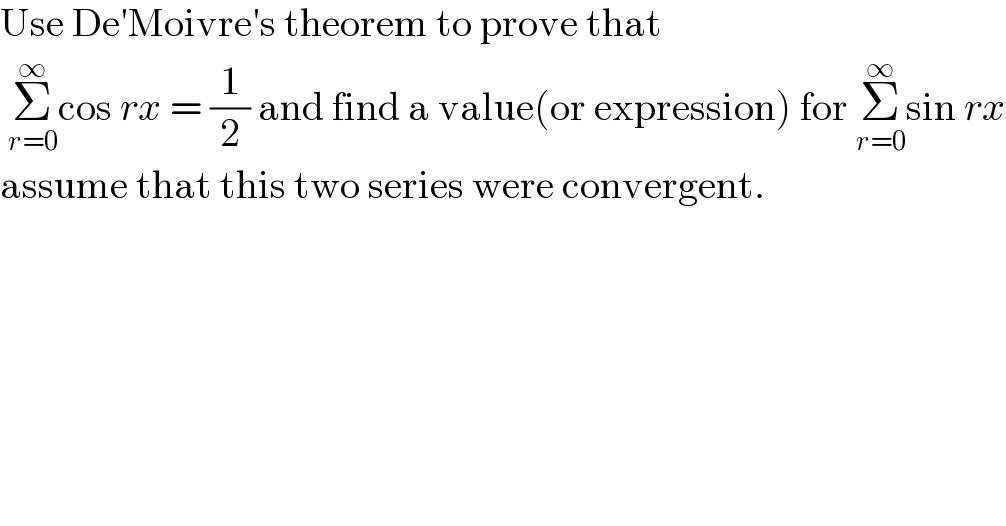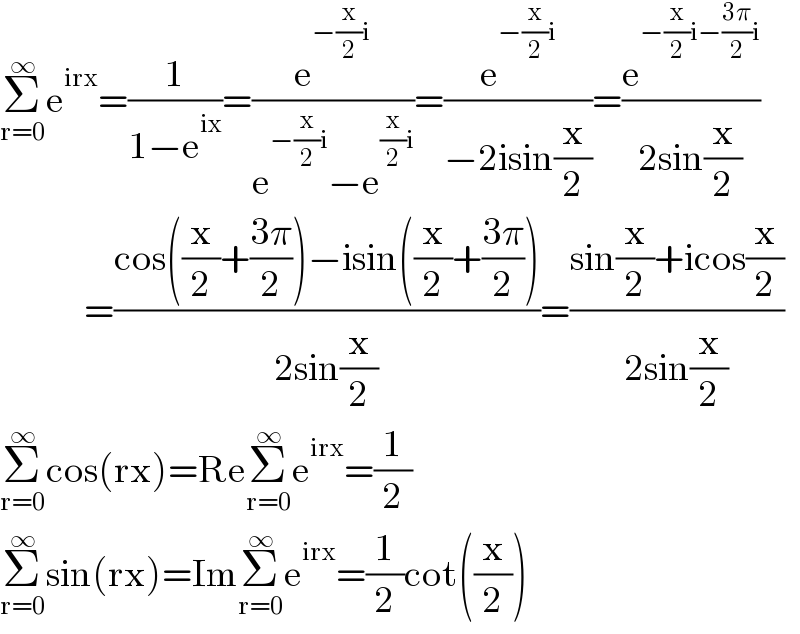
Question and Answers Forum
Question Number 136582 by physicstutes last updated on 23/Mar/21

Answered by Ar Brandon last updated on 23/Mar/21

Commented by physicstutes last updated on 23/Mar/21

| ||
Question and Answers Forum | ||
Question Number 136582 by physicstutes last updated on 23/Mar/21 | ||
 | ||
Answered by Ar Brandon last updated on 23/Mar/21 | ||
 | ||
| ||
Commented by physicstutes last updated on 23/Mar/21 | ||
 | ||